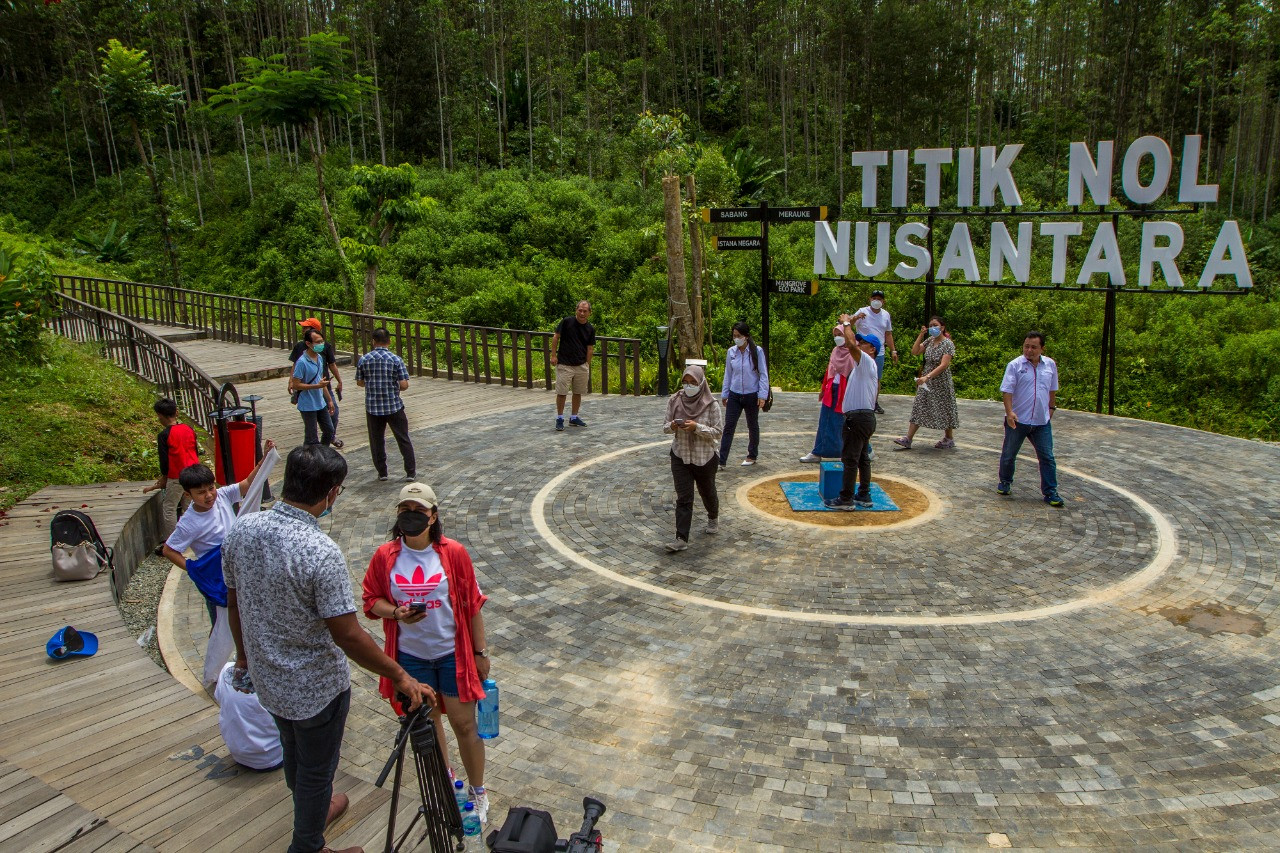Popular Reads
Top Results
Can't find what you're looking for?
View all search resultsPopular Reads
Top Results
Can't find what you're looking for?
View all search resultsCreating agglomeration economies in Nusantara
The proximity of businesses and institutions allows the people living in the city to access a variety of employment opportunities, goods and services with ease and convenience.
Change text size
Gift Premium Articles
to Anyone
T
he plan and development process of Indonesia’s new capital city, Nusantara, in East Kalimantan, has set off heated public debates among policymakers and public policy analysts, but Joko “Jokowi” Widodo’s administration has stubbornly proceeded with its development, a city that is envisioned to be a “forest-smart city.”
The progress of the new capital city development has reached 12-15 percent of total basic infrastructure development targeted to be fully completed in 2024. Given this progress, it is now important to think about how the ongoing development of the new capital city can successfully achieve its envisioned goals.
Creating agglomeration economies, referring to the concentration of economic activities, industries and population in a specific geographic location, is an important factor for the development of Indonesia’s new capital city.
The success of the new capital city is heavily determined by the government’s well-planned policies and strategies that encourage the creation of agglomeration economies during the early stages of its development.
Agglomeration economies can bring many benefits that arise from the proximity and exchange of ideas and information. It can encourage economic growth, improve the residents’ quality of life and enhance the overall success of the new capital city.
The large concentration of businesses and workers in the city can lead to the development of specialized suppliers, services and infrastructures. This will generate economies of scale that leads to reduced costs, increased efficiency, improved competitiveness and thereby boosting the city’s economic growth.
The clustering of economic activities can also help the establishment of a dynamic and diverse economy in the new capital city, as a mix of different types and sizes of businesses are attracted to this area and the new industries emerge and grow. This diversity can foster the creation of a more resilient and stable economy as the existence of a variety of businesses can moderate the adverse effects of economic shocks.
Finally, the proximity of businesses and institutions allows the people living in the city to access a variety of employment opportunities, goods and services with ease and convenience. It can also promote knowledge-sharing and the best practices, leading to the development of new technologies and other innovations. This will further improve living standards and create a more dynamic and vibrant society, with a wide array of social, cultural and recreational opportunities.
Agglomeration economies can be formed both naturally and by design.
The former process slowly emerges when firms and institutions cluster in a particular location driven by market forces such as access to proximity to customers and access to raw materials and skilled workforces. The latter process, meanwhile, is created through thoughtful government policy interventions.
In the case of Nusantara, policymakers need to create a favorable environment for business and the economy to grow, while also taking the benefits of natural market forces that may exist. In this regard, some of the following policy interventions are needed to accelerate the formation of agglomeration economies.
First, the government should develop physical and social infrastructures, such as transportation and telecommunication networks, housing, education and healthcare facilities. They are crucial for attracting investments and retaining businesses and industries in the new city.
Second, the government should provide ample incentives, such as tax incentives and long periods of land tenure, to attract well-established firms in the key sectors, functioning as anchor and catalyst firms for the formation of clusters of interrelated industries.
Third, the government should create a transparent, efficient and effective governance structure, legal and regulatory framework, and strong institutions that are favorable for business and economic growth.
Fourth, the government should support research and development activities and provide funding to promote collaboration and innovations leading to knowledge spill-over among firms and workers and the development of new technologies and business models.
Lastly, the government should encourage entrepreneurship through the creation of a favorable business environment, tax incentives, access to capital and support services such as incubators and accelerators. This can promote the growth of small and medium enterprises (SMEs) and create a strong and diverse economy, which are essential components of any agglomeration economies in the city.
All in all, by bringing a large concentration of businesses and people, the new capital city can be transformed into a thriving economic hub that boosts investment and economic growth, encouraging knowledge and information sharing. It is therefore critical for the government to put in place efforts that promote the agglomeration of economic activities, industries and the population in Nusantara.
***
The writer is a researcher at the Economics Department of the Centre for Strategic and International Studies (CSIS), Jakarta.










